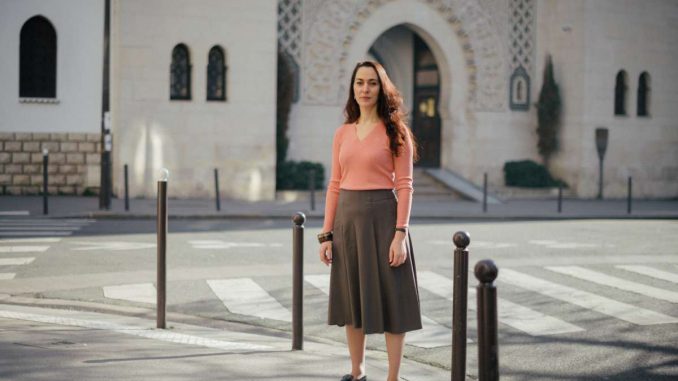
Kahina Bahloul provoked the anger of the Muslim community in France, after taking on the role of Imam in a mosque in Paris, an act that Muslims consider heresy and an insult to them.
Indeed, this woman, who is preparing a PhD thesis on Ibn Arabi, led Friday prayers at the Fatima mosque, a mosque where homosexuals and women without veils are allowed to enter, unlike the rest of Islamic mosques. She also delivered the Friday sermon, with the theme: “Universal Divine Love”.
Kahina Bahloul, a Frenchwoman of Algerian origin, insisted that the mosque’s address, rented for this prayer, should remain unknown for security reasons, especially after receiving numerous threats and insults via her social network pages.
Being of Amazigh origin, Kahina Bahloul defends the right of women to preside over prayer in Islam, and says that only the Salafist who are against it, not the hadiths and the Koranic text. She defends a “modernist” and “liberal” Islam that is totally different from traditional Islam, which, in her view, is no longer in tune with the spirit of our times.
Kahina Bahloul has for years advocated women’s leadership and gender diversity in mosques, an idea she shares with her colleague and friend, philosophy professor Faker Korchane, who, like her, rejects the current reality of mosques and sermons in France on the excuse that they perpetuate extremism, the retrograde spirit and the distinction between Muslim men and Muslim women.
She said in an interview with the newspaper “Al-Quds Al-Arabi”: “There is great discrimination against Muslim women. They are not allowed to enter the main prayer halls, thus finding themselves isolated in narrow rooms that are not suitable for prayer. Moreover, many Muslims in France feel that the current discourse is not coherent and is based on outdated traditional thinking. These Muslims, of which I am one, are harassed by this situation; they aspire to a new discourse capable of conveying the religious message with a modernist perspective that best corresponds to the new scientific advances in the fields of human sciences and anthropology. »

Be the first to comment